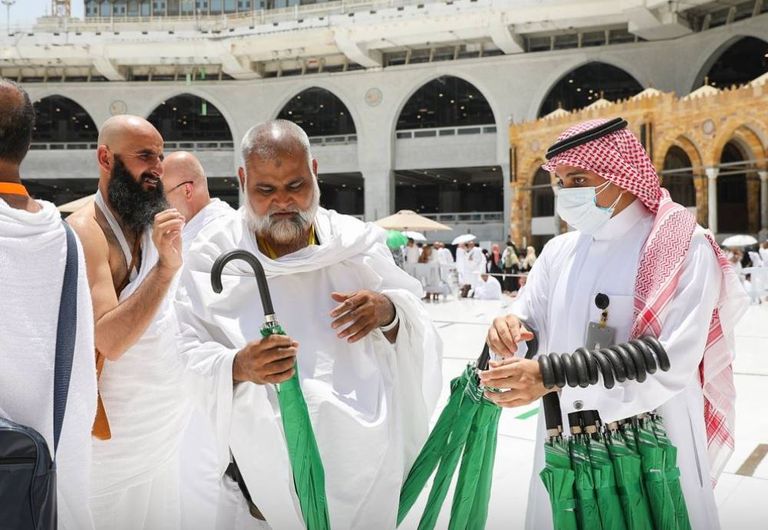PHCC Urges Pilgrims to Take Vaccinations Required for Hajj

As the risk of transmission of communicable diseases during the Hajj is increased in places of pilgrimage due to overcrowding, the Primary Health Care Corporation (PHCC) has urged pilgrims to take necessary precautions and get vaccinated prior to heading to Hajj, especially older persons, and those with chronic diseases.
Family Physician at PHCC’s Madinat Khalifa Health Center, Dr. Mai Al Sammak, stressed the importance of physical preparedness through adopting a healthy lifestyle, exercising, and eating healthy foods.
She urged pilgrims to adhere to instructions and directives and be sure to take all necessary vaccinations and documentation, such as vaccinations against meningitis and COVID-19. Other vaccination that are advisable to take include seasonal influenza, pneumonia, and tetanus.
Al Sammak said that pilgrims should practice good personal hygiene. They should wash their hands regularly with soap and water or alcohol sanitizer, avoid touching their eyes, nose, and mouth, and wear a face mask, especially in crowded places, as this would reduce the spread of respiratory diseases. In addition to proper disposal of waste and avoiding spitting in public, which can spread infections.
To handle the hot weather in Mecca, wearing suitable and light clothing and sun-safe hat is advisable. “Avoid direct exposure to sunlight during the hours of the most intense sunshine and drink enough water to stay hydrated,” Al Sammak added. In case pilgrims experience symptoms of heat exhaustion, including headache, weakness, muscle or abdominal cramps, and elevated body temperature, they should seek medical help.
To prevent infectious diseases during Hajj, Al Sammak advised pilgrims to avoid contact of sick people, eat healthy, drink from bottled water, avoid eating from unknown places or from streets, and avoid eating undercooked foods or raw milk.
Pilgrims should be able to identify the symptoms of common infectious diseases during the Hajj season, such as diarrhea, vomiting, fever, and coughing. If any of these symptoms appear, they should seek medical help.
Older persons and those with chronic illnesses should consult their doctor before heading to Hajj, since they may be taking certain medicines that require special attention, as well as making sure they are in good health and can perform Hajj. That is through building their body’s endurance and flexibility by performing appropriate exercises before Hajj, such as walking, stretching, and building muscles.
In addition, Al Sammak called on pregnant women to consult doctors before Hajj to determine whether they can endure the physical conditions, as they may need special facilities to receive their needs.
Al Sammak added that parents should make sure that their children are wearing suitable and comfortable clothing and holding an ID with contact information, stressing that children must be accompanied by a guardian all the time and should be instructed to maintain personal hygiene and thoroughly wash their hands with soap and water or sanitize their hands.
Furthermore, pilgrims are advised to go to licensed barbers only who thoroughly wash their hands before shaving and use sterilized or single-use shaving tools.